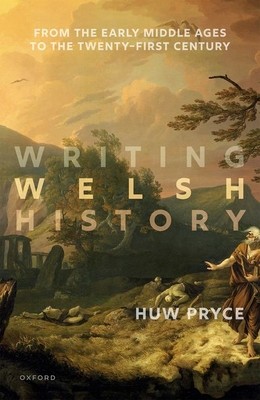
- We will send in 10–14 business days.
- Author: Huw Price
- Publisher: Oxford University Press, USA
- ISBN-10: 0198746032
- ISBN-13: 9780198746034
- Format: 15.9 x 24.1 x 3.2 cm, kieti viršeliai
- Language: English
- SAVE -10% with code: EXTRA
Reviews
Description
Writing Welsh History is the first book to explore how the history of Wales and the Welsh has been written over the past fifteen hundred years. By analysing and contextualizing a wide range of historical writing, from Gildas in the sixth century to recent global approaches, it opens new perspectives both on the history of Wales and on understandings of Wales and the Welsh - and thus on the use of the past to articulate national and other identities. The study's broad chronological scope serves to highlight important continuities in interpretations of Welsh history. One enduring preoccupation is Wales's place in Britain. Down to the twentieth century it was widely held that the Welsh were an ancient people descended from the original inhabitants of Britain whose history in its fullest sense ended with Edward I's conquest of Wales in 1282-4, their history thereafter being regarded as an attenuated appendix. However, Huw Pryce shows that such master narratives, based on medievalsources and focused primarily on the period down to 1282, were part of a much larger and more varied historiographical landscape. Over the past century the thematic and chronological range of Welsh history writing has expanded significantly, notably in the unprecedented attention given to the modern period, reflecting broader trends in an increasingly internationalized historical profession as well as the influence of social, economic, and political developments in Wales and elsewhere.
EXTRA 10 % discount with code: EXTRA
The promotion ends in 22d.05:13:34
The discount code is valid when purchasing from 10 €. Discounts do not stack.
- Author: Huw Price
- Publisher: Oxford University Press, USA
- ISBN-10: 0198746032
- ISBN-13: 9780198746034
- Format: 15.9 x 24.1 x 3.2 cm, kieti viršeliai
- Language: English English
sources and focused primarily on the period down to 1282, were part of a much larger and more varied historiographical landscape. Over the past century the thematic and chronological range of Welsh history writing has expanded significantly, notably in the unprecedented attention given to the modern period, reflecting broader trends in an increasingly internationalized historical profession as well as the influence of social, economic, and political developments in Wales and elsewhere.


Reviews